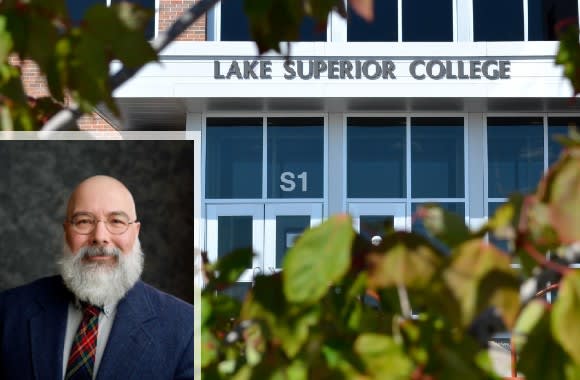Professor Sues Minnesota Governor Over Vaccine Refusal Termination

Legal Battle Over Vaccine Mandates Intensifies
A professor from Minnesota is embroiled in a legal battle over his refusal to comply with vaccine mandates, arguing that the government overstepped its authority. The case has sparked discussions about the balance between public health and individual rights.
Professor Russell Stewart, who taught philosophy at Lake Superior College for three decades, found himself at odds with the college’s policies after he declined to get vaccinated against COVID-19. His decision led to disciplinary actions, including being placed on unpaid leave and eventually terminated from his position. Stewart claims that his immunity to the virus made it unnecessary for him to receive the vaccine, and he believes the mandate was unconstitutional.
Stewart is now suing Governor Tim Walz and officials at Lake Superior College, alleging that the vaccine mandates were both unlawful and unnecessary. His legal team, representing him through the New Civil Liberties Alliance, argues that the government should not have imposed such measures once the immediate emergency had passed.
The lawsuit highlights the use of a 1905 Supreme Court case, Jacobson v. Massachusetts, which has often been cited to justify vaccine mandates. However, Stewart’s lawyers argue that this precedent should not apply in cases where the vaccine does not effectively prevent transmission. They claim that the current vaccines do not stop the spread of the virus, making the mandate unjustified.
During a recent court hearing, Judge Kate Menendez showed interest in the legal arguments presented by Stewart’s attorneys. She appeared open to the idea that courts should not simply rubber-stamp vaccine mandates without considering their effectiveness. Additionally, the judge seemed skeptical of the government’s claim that Stewart’s email to students was the primary reason for his termination.
The outcome of this case could have significant implications for other public employees who may have faced similar situations. If Stewart wins, it could set a precedent for others who were fired for refusing to comply with vaccination or testing protocols.
Legal experts have offered differing perspectives on the case. Professor Robert Destro from the Catholic University of America’s Columbus School of Law supports Stewart’s argument, stating that there was no scientific basis for the mandate. He emphasized that the government’s order lacked a rational foundation and was based more on narrative than science.
On the other hand, Professor John Banzhaf from George Washington University expressed a different viewpoint. He argued that courts typically defer to agency decisions, especially when they are grounded in accepted scientific principles. Banzhaf noted that schools and organizations have long implemented similar requirements, such as polio vaccination mandates, and that these have generally been upheld by the courts.
Banzhaf also raised concerns about the free speech aspect of the lawsuit. He suggested that if Stewart’s email to students was a private grievance rather than a public issue, then his argument would be weaker. He emphasized the importance of maintaining workplace safety and the potential risks associated with allowing exceptions for certain employees.
As the legal proceedings continue, the case remains a focal point for discussions about the limits of government power during public health crises. The outcome could influence future policies and the rights of individuals facing similar challenges.
Post a Comment for "Professor Sues Minnesota Governor Over Vaccine Refusal Termination"
Post a Comment